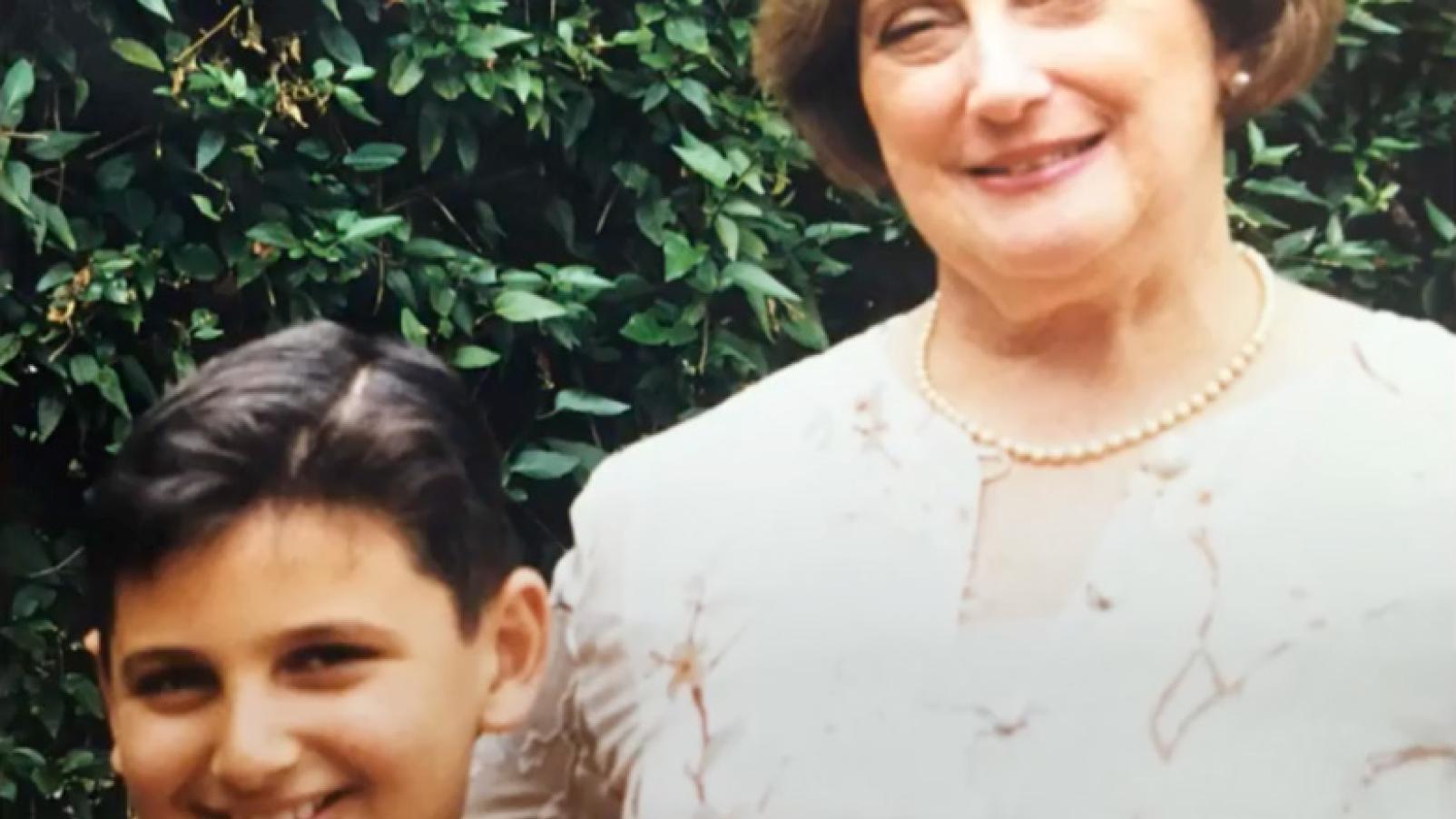“As my grandma's memory declined, we made a conscious effort to help maintain her connection to her culture”

For Adam, honouring his grandmother’s culture was key to maintaining her quality of life while living with dementia.
“Food was not just fuel for the body, but also for the soul”
Ensuring all her favourite foods were available was an important consideration for Adam and his family when looking after his grandma.
“My grandma's culture played an integral part in caring for her during her battle with dementia. Being of British and Italian descent; we knew that food was not just fuel for the body, but also for her soul. Even as her memory deteriorated, we made sure that our family gatherings continued to include her favourite meals and desserts,” Adam said.
“In the early part of her prognosis, there was nothing like seeing her face light up when she caught a whiff of lasagne baking in the oven, or seeing her put together one of her special pavlova’s or dried fruit puddings.”
“We’d play some of her favourite musicians like Billy Joel and Dean Martin”
When Adam’s grandma dementia progressed they found it harder to find ways to support her.
“Although as grandma’s condition worsened, we were limited and restricted to the confines of 24-hour care in a hospital room. So, we did the best with what we had available,” Adam said.
“It was in these moments that we felt a deep connection to her culture, and we knew that we were honouring her legacy in the most authentic way possible. We’d play some of her favourite musicians like Billy Joel and Dean Martin; or play films she remembered. Sometimes, we’d play games – but not often as things became more challenging.
“These activities not only brought her joy, but they helped reduce her feeling of being overwhelmed. Every day was a new day; and this meant reintroducing yourself multiple times per day. By digging into her past, we found a way to soften the harshness of her present. And still created memories, and strengthened our bond with her.
“As my grandma's memory declined, we made a conscious effort to help maintain her connection to her culture.
“Rosary beads were never missing from her bedside table – grandma was a proud, practising Catholic. We would show her old family photos and talk about her childhood, reminding her of her roots and the people and places she loved. Luckily, our family was never shy about capturing precious moments over the years.”
“Caring for someone with dementia can be incredibly challenging and emotionally draining”
With his family, Adam took turns looking after his grandma and making sure she was never lonely.
“Unfortunately, Christmas last year was spent in the hospital room with grandma. But I am incredibly proud of my aunties, uncle, parents, siblings and cousins for never not being by her side. For standing by the matriarch of our family – and doing everything in their power to make her feel comforted, special and loved.
“Sometimes, this means sharing photos with grandma on her difficult days – we were able to ease her fears and forgetfulness.
“Caring for someone with dementia can be incredibly challenging and emotionally draining. As someone who has witnessed the impact of dementia on a loved one, my heart goes out to all the carers out there who are doing their absolute best under difficult circumstances.
“One thing I've learned is that maintaining a connection to the patient's culture can be very beneficial for both the patient and the carer. It's not always easy, but taking the time to learn about and embrace the patient's cultural background can help you understand their likes, dislikes, and preferences.
“Food, images, music, and cultural traditions can all be incorporated into the patient's care plan to help them feel more comfortable and at ease. It's also important to be patient, compassionate, and to remember that the person you're caring for is still the same person they've always been, even if their memory is fading.
“Luckily, the team supporting my grandma did this, and adjusted their style and approach to care accordingly.
“There were days where my grandma wouldn’t want to eat or talk. In the process of sharing memories and past experiences with grandma, not only would she regain appetite and slight memory, but would hold onto our hands and ask for a kiss. Memories I will never forget.”
Dementia Australia can help you and your family with access to essential and life-changing support services.
Call us at any time for support, or if you need someone to talk to. We are here to help. The National Dementia Helpline is available 24 hours a day, seven days a week, 365 days a year on 1800 100 500.
Adam Abbasi-Sacca is a proud Italian and Iranian Australian freelance writer and commentator whose work can be found in a range of publications. His focus is storytelling and opinion editorial pieces that capture his personal experiences. He is contactable via his website.
